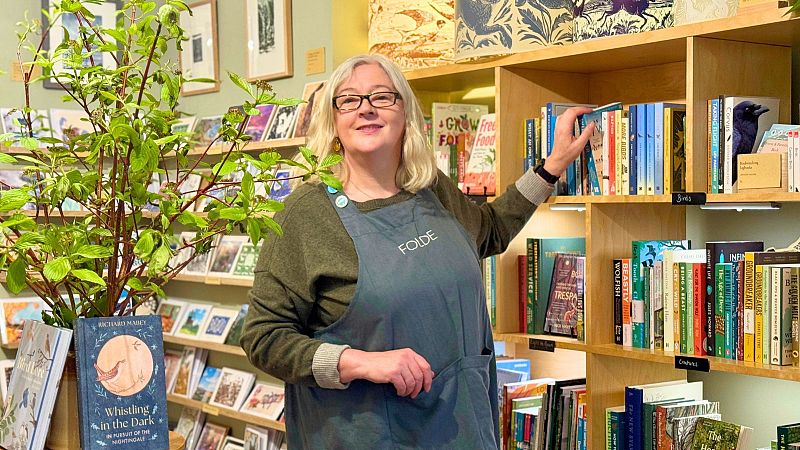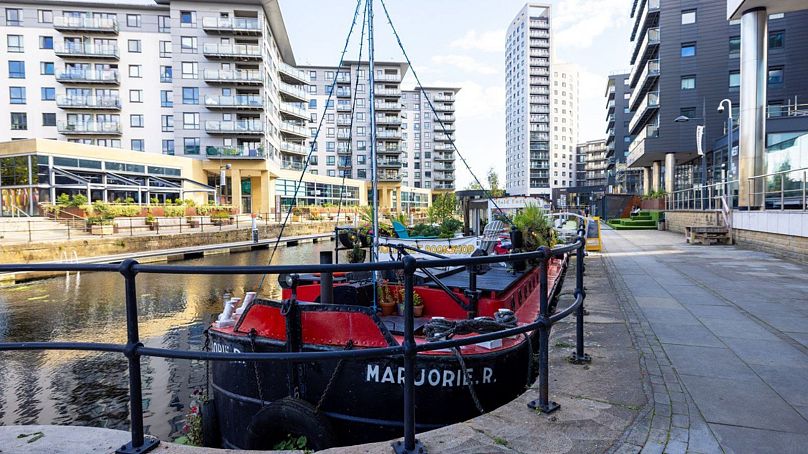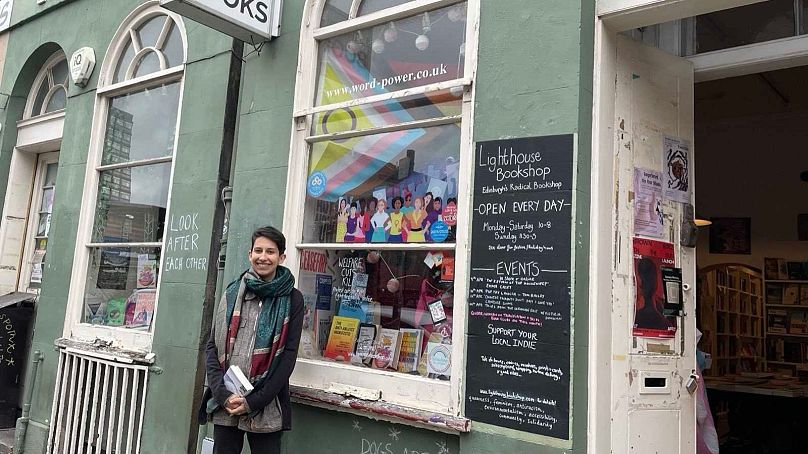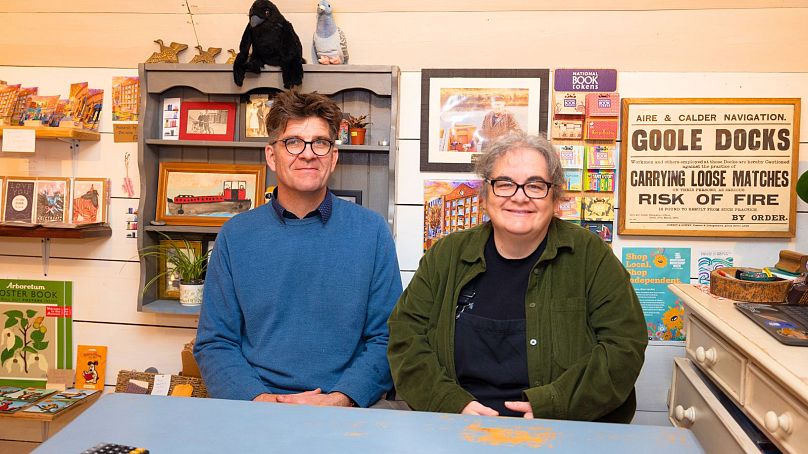
“Books are a comfort, they are a way of seeing things differently,” says Victoria Bonner, co-owner of Hold Fast bookshop in Leeds.
Her bookshop is on a boat - a former 1946 Yorkshire coal barge, to be precise. On the same stretch of waterway where it used to ferry coal, the hull is now laden with a variety of genres.
“At the moment there's just tonnes of really gorgeous books about nature, about gardening, about the planet and the oceans…” Victoria says. “It's so difficult not to have too many, to be honest, we could sink the boat with how many there are.”
On the high street or waterway, bookshops are among the most comforting of public spaces. But like the books they hold, a good bookshop also expands our horizons - and better equips us for the challenges of the modern world. At a time of climate breakdown, they have a vital role to play.
From Leeds Dock to the cobbled streets of Dorset and Edinburgh, we spoke to booksellers about the joys and responsibilities of that job.
Matching the right book to the right person
At the simplest level, people need information. “A lot of what you come to online is clickbait, or it's nonsense, or it's strongly opinionated TikToks with no groundwork in reality,” says Victoria. “I think people want to look after the planet, but they don't always know where to start.”
‘Nature writing’ can be a narrow section in some bigger shops, but is given breathing room and space to mingle with other titles at independents. It is part of a rich ecosystem of environmental and climate books.
FOLDE - at the top of the iconic Gold Hill street in Shaftesbury, Dorset - focuses mainly on climate action, conservation, wildlife and land management, nature fiction and nature memoir, as well as books about the natural world for children.
“One of the really important roles of booksellers [is] to understand what a person is looking for and to match them to the book that sets them on a journey,” says co-founder Amber Harrison.
A “fiery and fact-laden” book would be an ill-suited guide to somebody searching for hope, for example. More fitting would be one that offers steps forward, from making personal changes to taking action within an organisation or lobbying at a higher level.
Alongside non-fiction, Victoria sees a special value in folklore and fairytales, “that encourage people to make connections with the land” - through stories that “for many years have been used as a way to protect the Earth.”

Jessica Gaitán Johannesson is the digital campaigns manager at Lighthouse, described as Edinburgh’s radical bookshop. “The way we see it, books are the starting points of action making and of change making,” she says.
“It's not enough with people reading climate fiction or books about environmental injustice. What do you do when you put the book down?” As a hub for grassroots organising, the shop connects people to groups they can join and actions they can take after reading a book that fires them up.
Organising the world with language
For Jessica, a bookseller’s role is to “push against this idea that the climate crisis can in any way be separate from all our other crises that we are living through at the moment.”
‘Radical’ comes from the word root, she notes. It entails going to the root of problems, rather than talking about superficial solutions.
Bookshop curation, reading lists, events and one-to-one conversations are ways of offering a deeper analysis and highlighting climate connections - seeing what resonates for individuals.

Conversations can take books out of the neat categories that publishers put them in for ease of reference. While curating requires an adaptive approach, she says. “It's about people being able to find the right books that they're looking for. But also, maybe people being exposed to other kinds of books they might not otherwise have found.”
Lighthouse has a nature and environment section where they make sure that underrepresented writers are easy to find, since “nature writing by tradition has been very, very white and very middle class.”
“It's important to hold your values true,” says Victoria. “I think that's what people love about independent bookshops, every one of us is different.”
Hold Fast only sells vegan cookbooks, and travel books that don’t encourage flying. Visitors perusing its up-cycled shelves can also purchase oat milk chocolate.

FOLDE embodies its environmental values too. It runs on 100 per cent renewable energy, and is the first bricks and mortar bookshop in Europe to be certified as a B-corp, says Amber, who co-founded the shop after a 20-year career in sustainability in the IT and aviation industry.
Lighthouse takes the remit of a climate-conscious bookshop a step further, by organising probing events and campaigning for a book trade free of fossil fuel investments.
From the shop to the digital sphere
Lighthouse is both the physical shop on West Nicholson Street, the digital space that the booksellers operate in, and an Edinburgh book fair they organise every year, says Jessica.
Online, they commission blogs from local climate justice organisers, and livestream events so they’re accessible to all. The inaugural Climate Fiction Prize shortlist is covered in a blog that contextualises the prize with historical works and links out to current climate campaigns.
Meanwhile, the Radical Book Fair, which Jessica programmes, has a unique emphasis on activism. Each panel of authors also includes at least one local organiser, further embodying Lighthouse’s ‘read, think, act’ mantra.
They also support the work of Fossil Free Books, a collective of book workers organising for an industry free of fossil fuel funding, many of whom are based in Scotland.
“The publishing industry is taking steps to reduce its impact on the climate so there are initiatives like Publishing Declares where organisations and publishers and booksellers can sign up to the sector's first declaration on climate change,” adds Victoria.
“There are some publishers who are starting to really think about the carbon footprint of the books that they produce, and that's really good to see.”







